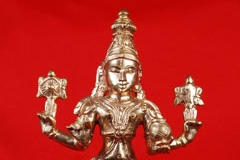Ayurveda, the ancient healing system is the pride of Indian culture and heritage. It is believed that Lord Brahma, the creator, blessed humanity with this precious system of healing to safeguard and foster its health and assure longevity.
Ayurveda derived from two words Ayush and Veda. “Ayush” means life expectancy. Ayurveda is the science of life, which deals with the secrets of longevity, diseases and their cure, healthy food, beverages and habits.
Ayurveda is a fine art and science that deals with the body, mind and soul. A sound body with sound mind is the motto of Ayurveda. So keeping good health, positive attitudes towards life and the way to reach the supreme entity are elaborated.
Our life and its destiny, the events and occurrences are controlled by a supernatural power that is alive in the nature itself. Health is important to realize and digest its holy existence. Ayurveda leads us from darkness to light. It assures a wholesome life and a multitude of joys and pleasures.
Importance of Ayurveda
Aayuhu kaamayaamanena dharmaartha sukha sadhanam|
Aayurvedopadesheshu vidheyah paramaadaraha||
shtanga Hridaya Samhita
AYU- the life itself, is the instrument to attain Dharma – Sustainance, Artha – Worldly wellbeing and Sukha – Happiness. The individual, who wishes to achieve such an AYU, should follow the recommendations of Ayurveda, with utmost respect.
Ayurveda defines health as:
Samadosha Samagnishcha Samadhathu Malakriyah|
Prasannathma Indriya Manaha Swastha ithi abhidiyathe||
which means- a balanced state of ‘Tridosha, (Vatha, Pittha, Kapha), Agni (the digestive and metabolic power), “Dhatu” (Rasa Rakta Mamsa Meda Asthi Majja shukra) “Mala” (the excretions like sweat, stool and urine) and pleasant mind, soul and sensory organs.
Ayurveda speaks extensively of “Dinacharya” the daily observance of practices; “Rithucharya” the seasonal observance of food and behavioral habits; “Dosha”; “Dhathu” the elements and “Mala” the excretions.


